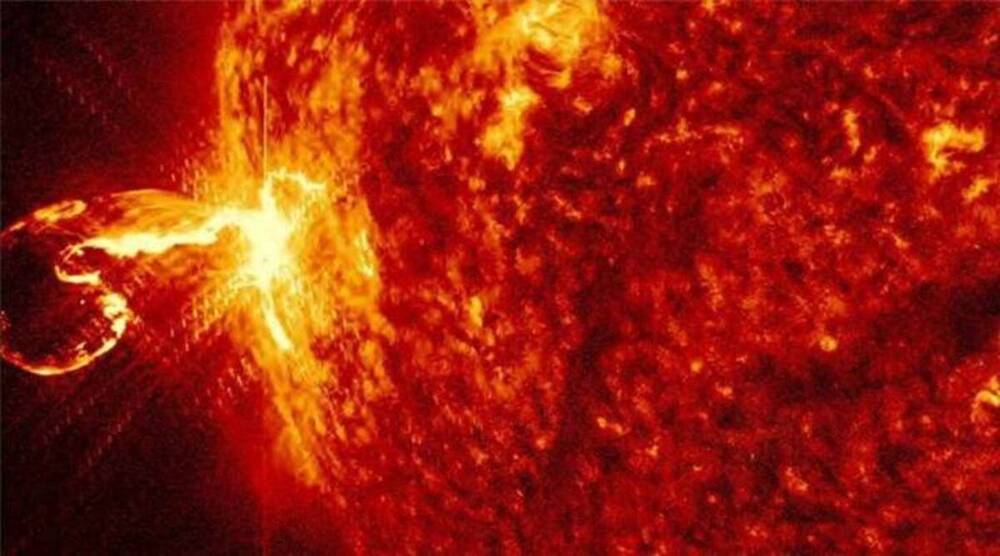For the first time, space weather disruptions triggered by the Sun were measured using pulsars with the help of the upgraded Giant Metrewave Radio Telescope (uGMRT) in Pune.
Usually weighing 1.5 times more than the sun, pulsars are massive stars which rotate at a very high speed (up to 600 rotations per minute) and emit periodic radio flashes. Pulsars are considered the most accurate clocks in the universe and scientists accurately predict their flashes.
Using uGMRT, astronomers record pulsar radio flashes once every 14 days and it was during one such observation in February 2019 that they chanced upon Coronal Mass Ejection (CME). One such disruption, resultant CME, was confirmed based on the abnormally-delayed radio signals received from PSRJ2145 – 0750, the pulsar source under uGMRT observation, on February 23, 2019.
